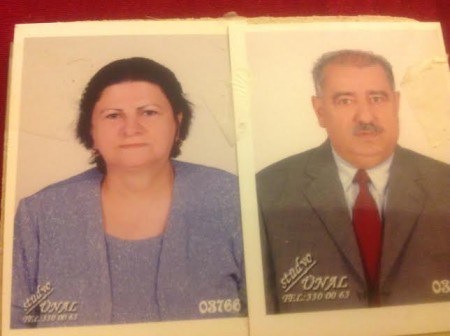Our Forgotten Hostages
By Kenneth R. Timmerman
FrobtPageMag.com

Goljahan and Mohammad
Mohammadi
Forget for an instant – if you can– the ethics of negotiating with a terrorist state that is openly and brazenly holding U.S. citizens as hostages.
After all, America’s formerly worst president, Jimmy Carter, did just that for 444 days.
But Carter was negotiating the whole time to achieve the release of the hostages, not the rehabilitation of the Islamist regime that had taken them. Today, the Obama White House absurdly claims that Iran has “already been punished” for holding U.S. hostages — by being excluded from Obama’s presence.
Wisconsin Governor Scott Walker elevated the status of America’s forgotten hostages last week by visiting the family of U.S. Marine Sergeant Amir Hekmati and calling on the Obama administration to work harder for his release.
Hekmati, who was honorably discharged from the U.S. Marines in 2005, was arrested in August 2011 while visiting family members in Iran and has been held more than twice as long as the Carter-era hostages.
Also detained in Iran today are Pastor Saeed Abedini, Washington Post reporter Jason Rezaian, and former FBI agent Robert Levinson.
But these four are just the best known of the Islamic Republic’s American hostages.
Countless other Americans have been detained in Iran over the years, including pro-regime academics, journalists, and innocents abroad for a hike in the mountains. For the regime, these captives provided opportunities to humiliate America’s leaders, demonstrating yet again that the founder of the Islamic Republic, Ayatollah Ruhollah Khomeini, was right when he exclaimed contemptuously about a feckless President Carter, America can do nothing!
President Obama seems to agree. When Senator Roy Blunt (R, MO) filed an amendment to the Iran Nuclear Agreement on April 27 to make any agreement with Iran contingent upon the release of these four hostages, the White House threatened to veto it. On Monday, Sen. Blunt came back with a non-binding resolution stating that it is U.S. policy that Iran should release these hostages.
But Iran’s calculating mullahs have also taken another, much larger, group of Americans hostage: American citizens or permanent residents of Iranian origin, who fell for the regime’s propaganda that they could go home again to visit relatives or to reclaim property seized by the regime.
Some, like Siavash Bayani, never made it back to the United States, dying after being tortured by regime thugs in detention.
Others continue to languish in Iranian prisons on trumped up charges. Still others remain in administrative limbo, not officially captives, but not allowed to leave Iran.
Such is the case of Goljahan and Mohammad Mohammadi, respectively 66 and 73 years old, the parents of well-known student activists Manouchehr and Akbar Mohammadi.
The Mohammadi brothers helped lead protests at Iranian universities in the late 1990s. Both were jailed following the student uprising in July 1999. Akbar Mohammadi died seven years later, after multiple hunger strikes where he denounced the regime’s torture of political prisoners.
Manouchehr Mohammadi managed to flee Iran shortly after his brother’s murder. His parents followed him to the United States shortly afterwards, acquiring U.S. permanent resident status in 2009.
In August 2010, thinking their status as U.S. green-card holdings put them beyond the reach of the Islamic Republic system, the elder Mohammadis returned to Iran to visit their surviving oldest son and his family.
When they were about to board a plane to return to the United States in February 2011, the Mohammadis were confronted by regime security agents at the Tehran airport, who confiscated their passports and prevented them from leaving the country.
Over the past four years, the Mohammadis have taken every legal step imaginable, visiting government offices in their home town and in Tehran, eventually hiring a lawyer to pursue their case. “No one has ever told them why their passports were confiscated. They never even answered them,” their daughter, Nasrin, told me.
During that time, Mrs. Mohammadi had a stroke and for several months lay in a coma in an ordinary room of the local hospital, without being allowed access to specialists or the intensive care unit. Earlier this year, Mr. Mohammadi had a heart attack. “Both of them need of immediate care. The regime is just hoping they will die,” Nasrin said.
Nasrin Mohammadi has published a book about her brother Akbar’s incarceration and death, and along with her brother Manuchehr and another sister, filed an unsuccessful lawsuit in U.S. District Court for the District of Columbia seeking damages from the Islamic Republic of Iran for Akbar’s torture and death.
She has appealed for help, so far without response, to the State Department and to the United Nations Special Rapporteur for Human Rights in Iran.
Why does the Obama administration seem to dismiss
the fate of our forgotten hostages? Could it be that
the vainglory of The One, eager to claim his place
in History, outweighs the survival, let alone the
well-being, of the many?

